
Projects
If you would like your child to take part in any of our studies, please consider completing our online registration form, alternatively contact the researcher named directly.
Current projects
HOW CHILDREN INTERACT: A Zoom study
This study will investigate how long 5- and 6-year-olds can wait for a food reward in a social context. Delay of gratification is the ability to resist eating an immediate reward in order to obtain a bigger reward in the future. This ability has been linked to better life outcomes such as educational attainment and is a key component of working with others.
We are looking for children aged 5-6 years, to take part in an online research project to help us investigate how the fairness of a reward influences children’s motivation to wait for it. This will involve your child listening to instructions about a food treat, alongside a video of another child online. It is a simple activity lasting no more than 30 minutes on Zoom.
If your child is fluent in English and has no known developmental disorders, then we would love to hear from you! If you’ve got any questions or would like to get involved, please email the lead researcher: charlotte.savill@manchester.ac.uk
How do children understand conflict of interest

A conflict of interest can affect a person’s judgement in making decisions based on external factors (e.g., financial gain, personal opinions, social pressures, etc.). Our critical thinking skills allow us to understand the trustworthiness of information based on one or a number of these factors.
However, not much is known about young children’s understanding of this. Do they pay attention to someone’s conflict of interest, or are they more likely to focus on whether the person’s explanation is logical?
We’re inviting families with children aged 5, 6 or 7 years to help us answer this question! Your child will play a 30-minute game with one of our research assistants on Zoom at a convenient time for you.
Interested in taking part? Fill in the digital consent form in this link, or email sophie.bennett@manchester.ac.uk for more information.
Do you hear what I hear? Exploring infants’ ability to find words in speech
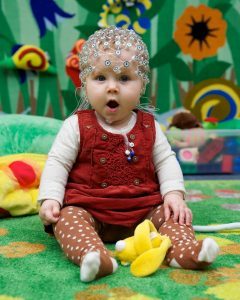
Before infants can learn what words mean, they need to break down the continuous stream of sounds they hear in speech into individual words. Research shows that infants start this process, called speech segmentation, from birth. However, precisely measuring how well an infant can segment speech is challenging. The purpose of this study is to determine whether infants’ brain activity recorded with an EEG is a good measure of how well they can break down speech into individual words.
We are looking for infants who are (or soon to be) 8-months-old, were born at full term (37+ weeks gestation), have no history of hearing issues, are typically developing, and come from an English-learning monolingual background.
If you’d like to learn more about taking part in this study, please contact Sarah Breen (sarah.breen@manchester.ac.uk)
How do children learn to produce complex sentences?
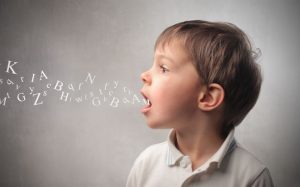
Languages like English allow speakers to put the words in a sentence into different orders. Compare for instance the sentences “After I had breakfast, I brushed my teeth” and “I brushed my teeth after I had breakfast”. As children start combining words and producing more complex sentences, they need to decide how to order words in a sentence. They also need to understand what a speaker wants to communicate to the hearer when using a particular word order. In this study, we want to find out how young children use word order to describe events. We also want to investigate if the children’s production and understanding of sentences is related to other abilities such as memory. From September 2022 we will be seeking mono-lingual participants aged 3 to 5 years, with no developmental delay. For more information contact: shijie.zhang@manchester.ac.uk
How does interaction help children learn new words?

Do you know children begin to share attention with their partner at the second half of their first year? To share attention, they may adopt various skills, including following other’s eye movement, pointing to share, etc. Share attention is thought to be important for their language development.
However, conflicting results still exist when considering different types of interaction. The current study looks at whether different ways in which children get involved in shared attention, similarly or differently, impact on their word learning.
We’re looking for families with children aged 12 – 16 months to help us with the study! Your child will play a 30-min on-site game with a Ph.D. student.
This study will enrich your understanding about different types of interaction and how they may help your child learn a word. If you are interested, please contact Senyu Chen (senyu.chen@manchester.ac.uk) to sign up for the study!
The effects of the individual, home, and community on language development in UK families
We are looking for families to help us with a new study. We are trying to find out more about how children learn Chinese, Urdu, and/or English at home before they start going to school. The study has two parts:
Part 1 – an anonymous survey for parents
Part 2 – if you agree to continue, we will meet you and your child and know more about your child’s natural language environment and language use.
We are seeking families in which Chinese or Urdu is spoken as one of your languages, or English is your only language and your child(ren) are typically developing and aged 3 years to 5 years and 6 months who are not in Reception/school yet. For more information contact: chen.zhao-2@manchester.ac.uk
Previous projects
Cross-metatalk

Children learn about the world from others. How do they evaluate the reliability of information they receive? To aid their social learning, children evaluate information provided by others, and importantly, the reliability of their informants. So, we would like to investigate whether 3- and 5-year-old children follow information provided by a more reliable informant. Your child will watch some animations and receive information from different cartoon characters (informants) about the location of a toy. Then they will team up with the researcher to find the toy.
Data collection for this study is now complete and analysis is ongoing. Any queries please contact Kirstie.Hartwell@manchester.ac.uk
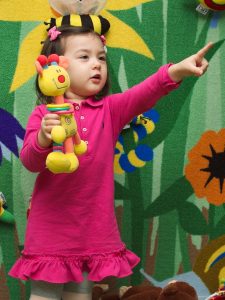 How do children reason with gesture?
How do children reason with gesture?
This online study aims to learn about how children aged 3 and 5 understand and use gestures in their reasoning. When we solve problems together, we explain our reasoning to one another. In our explanations we talk about the evidence that helped us form a belief or conclusion. We can communicate our reasons verbally, through talking about the evidence (e.g., “the dog must be in that house, because there are pawprints outside the house.”). But our reasons can also be communicated non-verbally, through gestures, (e.g., one can justify their belief, “the dog must be in that house”, by pointing to muddy pawprints in front of a house). We would like to find out whether children can communicate their reasons using gestures.
Data collection for this study is now complete and analysis is ongoing. Any queries please contact Kirstie.Hartwell@postgrad.manchester.ac.uk
Children’s delay of gratification

This study will investigate how long 5- and 6-year-olds can wait for a food reward in a social context. Delay of gratification is the ability to hold back from eating a reward now in order to obtain a bigger reward in the future. This ability has been linked to better life outcomes such as educational attainment and is a key component of working with others. The primary goal is to see whether children can better inhibit eating a treat if another child promises to do the same. If the children delay gratification, they will get a second treat (e.g. cookie).
Data collection for this study is now complete and analysis is ongoing. Any queries please contact Owen Waddington (owen.waddington@manchester.ac.uk).
The development of young children’s reasoning
Reasoning is an important part of human thinking and social interaction. For example, when making a joint decision, individuals may disagree with one another. Therefore, they need to compare and evaluate one another’s reasons for their beliefs in order to reach an agreement. During development, children learn this skill by producing and evaluating reasons in conversation. So far, we know that school-aged children are able to reason with their peers in this way. However, we do not know much about how reasoning emerges and develops from a young age. Therefore, our study explores whether children aged 3 and 5 can provide reasons for their beliefs during joint decision-making. Each child will take part in a collaborative ‘hide-and-seek’ style game, where they work together with a partner to figure out where a toy is hiding.
Data collection for this study is now complete and analysis is ongoing. Any queries may be directed to Kirstie Hartwell (Kirstie.Hartwell@postgrad.manchester.ac.uk).
Children’s understanding of what it means to say ‘sorry’! (Apologies 2 study)
Apologies are important for overcoming interpersonal conflict and help to restore social harmony. When we apologise for a wrongdoing, we are effectively promising to behave better in future. This project seeks to identify at what age this understanding of implied better conduct develops in children. Children listen to short stories of individuals apologising but continuing to do wrong and observing how they respond. If your child participated in our ‘Apologies’ study they can also take part in this next phase of exploration of how this important social skill develops.
Data collection for this study is now complete and analysis is ongoing. Any queries may be directed to Owen Waddington (owen.waddington@postgrad.manchester.ac.uk).
How do young children evaluate apologies?
Humans are inter-dependent. Our survival depends on our reliance on one another and our ability to work together. When social relationships are damaged, it is important that we repair those relationships. One of the most common and effective ways to do this is to apologise for our misbehaviours. In this study, we will investigate how children aged 5 evaluate apologies by two people who misbehaved towards a third person. We are interested in learning whether children excuse the transgressors depending on the kind of apology. As a result, some children will hear apologies (e.g. “I’m sorry”) by the transgressors and some of the apologies will be accompanied by excuses (e.g., “I’m sorry, but I thought we were finished”).
Data collection for this study is now complete and analysis is ongoing. Any queries may be directed to Owen Waddington (owen.waddington@postgrad.manchester.ac.uk).
What do children understand about promises?
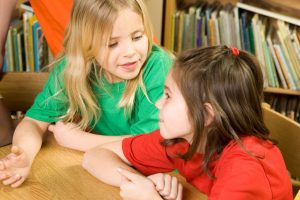 This online study aims to learn what children understand about moral behaviours, especially what they think about people who make a promise to behave in a particular way, but afterward break this promise. As adults, we tend to think that people should act how they say they will act, and we disapprove of people who don’t. At some age, children must acquire the tendency to do this, as well but we know little about how this occurs. Here, our goal is to learn more about how and when this tendency develops.
This online study aims to learn what children understand about moral behaviours, especially what they think about people who make a promise to behave in a particular way, but afterward break this promise. As adults, we tend to think that people should act how they say they will act, and we disapprove of people who don’t. At some age, children must acquire the tendency to do this, as well but we know little about how this occurs. Here, our goal is to learn more about how and when this tendency develops.
This study is completed and data analysis is underway. For further information contact the Child Study Centre (childstudycentre@manchester.ac.uk).
Children’s understanding of comparative words
In this online study we explore how children aged between 3 to 8 years learn the meaning of comparative words (e.g., ‘bigger’ and ‘smaller’). To do this the study introduces children to our friendly robot, Lexon, who needs help learning these types of word. Using pictures of different objects we ask our participants to tell Lexon which object matches the word (like bigger) that Lexon wants to learn. The study will take place via Zoom and we are recruiting now! For more information about how to take part contact Dr Alissa Ferry (Alissa.Ferry@manchester.ac.uk).
Children’s requests for help
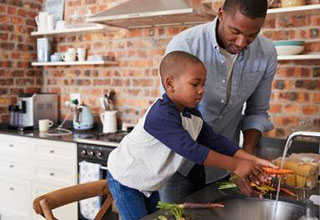 As they age, we know children start to selectively help others (e.g. when it is needed). But remarkably, little is known about whether young children are also selective when it is them asking for help. What do they think about when they request something? Is it all me, me, me or do they consider how their requests might impact on others? Owen Waddington, a PhD student here at Manchester, is hoping to understand more about how preschool children evaluate their requests for help.
As they age, we know children start to selectively help others (e.g. when it is needed). But remarkably, little is known about whether young children are also selective when it is them asking for help. What do they think about when they request something? Is it all me, me, me or do they consider how their requests might impact on others? Owen Waddington, a PhD student here at Manchester, is hoping to understand more about how preschool children evaluate their requests for help.
Data collection for this study is now complete and analysis is ongoing. Any queries may be directed to Owen Waddington (owen.waddington@postgrad.manchester.ac.uk).
Children’s language of emotion
This project aims to find out about 5-13-year-old children’s understanding of emotion words, and how it changes across this age group in typically developing children. We will be carrying out a few language based tasks over Zoom, investigating the effectiveness of some novel measures of the language of emotion. The purpose of this research is to prepare for a larger study that will compare the same language skills in typically developing children and Autistic children. This will help us to better support clinical populations through building our understanding of disordered language of emotion development. For more information please contact Mari Hamano (mari.hamano@student.manchester.ac.uk), who is working with Dr Jenny Freed and Dr Alexandra Sturrock
How do toddlers explore?
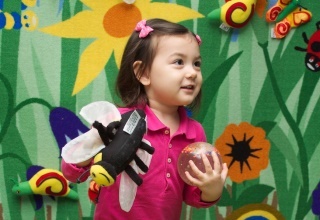 We know that toddlers spend a lot of their time exploring the world around them as they play and learning as they go. In this project we’re interested in whether the way toddlers explore is linked to their language development. We will be using play sessions and eye tracking to understand how toddlers prefer to learn in everyday play environments, and how we can support language development through play. If you’re the parent or caregiver of a toddler aged between 18 months and three years, please contact Katie Twomey (katherine.twomey@manchester.ac.uk) to find out more.
We know that toddlers spend a lot of their time exploring the world around them as they play and learning as they go. In this project we’re interested in whether the way toddlers explore is linked to their language development. We will be using play sessions and eye tracking to understand how toddlers prefer to learn in everyday play environments, and how we can support language development through play. If you’re the parent or caregiver of a toddler aged between 18 months and three years, please contact Katie Twomey (katherine.twomey@manchester.ac.uk) to find out more.
Category naming in Autism Spectrum Disorder
 This project is a chance for adults to take part! There is a growing awareness that children with Autism Spectrum Disorder (ASD) use language in a different way to typically developing children. In particular, children with ASD may be more likely to use unusual words compared to children without ASD. These subtle differences in language use can identify a child as different to their peers, which could contribute to difficulties making friends and feelings of well-being. In a larger study, children with and without ASD were asked to name examples of different categories. In the current study we are asking adults to rate these words for how typical they are of their category in a short online questionnaire. To find out how to take part, please contact Katie Twomey (katherine.twomey@manchester.ac.uk).
This project is a chance for adults to take part! There is a growing awareness that children with Autism Spectrum Disorder (ASD) use language in a different way to typically developing children. In particular, children with ASD may be more likely to use unusual words compared to children without ASD. These subtle differences in language use can identify a child as different to their peers, which could contribute to difficulties making friends and feelings of well-being. In a larger study, children with and without ASD were asked to name examples of different categories. In the current study we are asking adults to rate these words for how typical they are of their category in a short online questionnaire. To find out how to take part, please contact Katie Twomey (katherine.twomey@manchester.ac.uk).
What do babies learn best from?
This project aims to discover how we can best support young babies’ learning. In this study we show babies a series of pictures on a computer screen and record where they look using an eye tracker. Where, and for how long, babies look at the pictures lets us discover what they enjoy learning from, and how much they learn. If you’re the parent or caregiver of a baby who is older than six months old, please contact Katie Twomey (katherine.twomey@manchester.ac.uk) to find out more.

